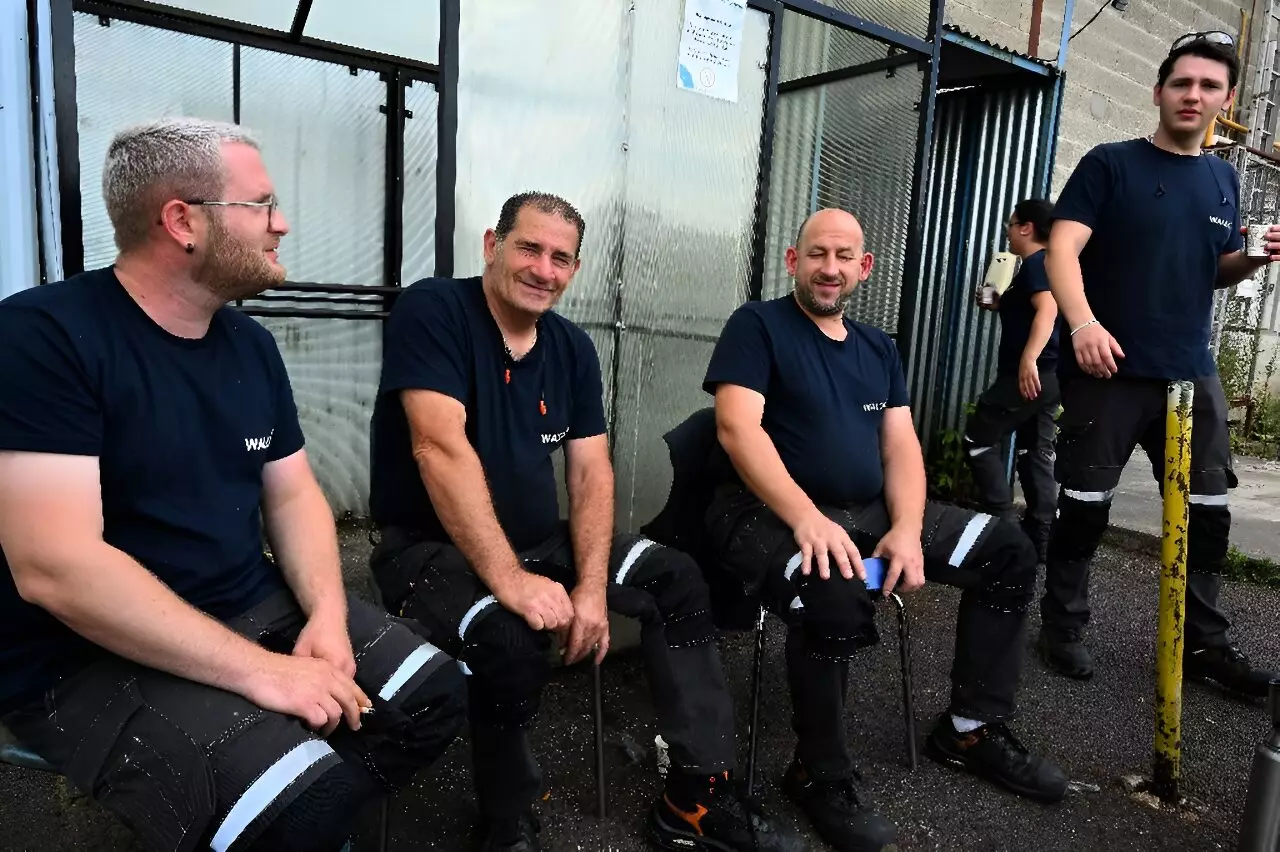France is gearing up to phase out new combustion engine cars by 2035, leading to significant changes in the auto industry. While there is optimism in regions like “Battery Valley,” where battery gigafactories are emerging, workers in other parts of the country are facing uncertainty about their future. With the looming deadline for the sale of new petrol and diesel cars in Europe, the industry, which currently employs 200,000 people in France, is undergoing a forced transformation.
In regions like northeastern Ardennes, where traditional auto parts suppliers are based, the outlook is bleak. Companies like Walor, which failed to invest in electric vehicle technology, are struggling to adapt to the changing landscape. Workers at these facilities, such as the one in Vouziers, are witnessing a decline in demand for parts like transmission differential housings and engine manifolds. The situation is exacerbated by the lack of investment and shifting priorities of global auto manufacturers.
Conversely, in the northern regions of France, a different story is unfolding. The emergence of battery gigafactories, supported by major players like Stellantis, Mercedes, and TotalEnergies, is creating a new hub for electric vehicle production. Projects like the Automotive Cells Company (ACC) in Douvrin signal a shift towards a more sustainable and innovative approach to manufacturing. However, this transformation comes at a cost, with traditional auto workers facing uncertainty about their future.
The transition to electric vehicles is expected to shake up the job market in the French auto industry. Studies suggest that as many as 65,000 jobs in the sector are at risk by 2030 due to the shift from petroleum-fueled to electric engines. Economists like Bernard Jullien predict job losses of up to 40,000 in the auto parts sector over the next decade. This transition is further complicated by the aging workforce in the industry, making retraining and reskilling a crucial aspect of managing the change.
The specter of offshoring looms large over the industry, with fears that manufacturers may seek cheaper labor markets to reduce costs. The example of Stellantis producing electric vehicles in Slovakia instead of France raises concerns about the future of local manufacturing. While some argue that the lower labor requirements of electric vehicle production could favor European manufacturing, others believe that offshoring may continue to dominate the industry, leading to a further decline in overall employment.
The French auto industry is at a crossroads, with traditional suppliers grappling with the shift to electric vehicles while new players emerge in the battery manufacturing sector. Workers across the industry face uncertainty about their future as job losses and offshoring threaten their livelihoods. As the deadline for phasing out combustion engine cars draws closer, the industry must find ways to navigate these challenges while ensuring a sustainable and equitable transition for all stakeholders. Only time will tell how the industry adapts to these seismic shifts and what the future holds for auto workers in France.


Leave a Reply